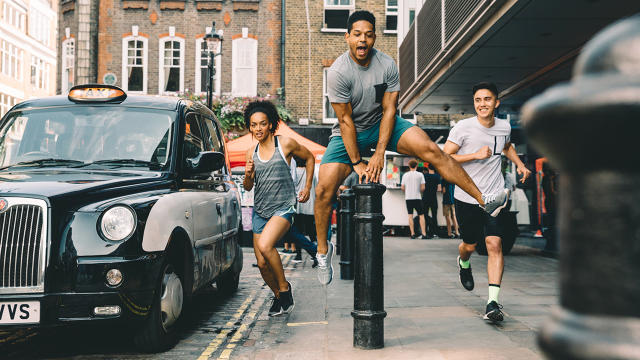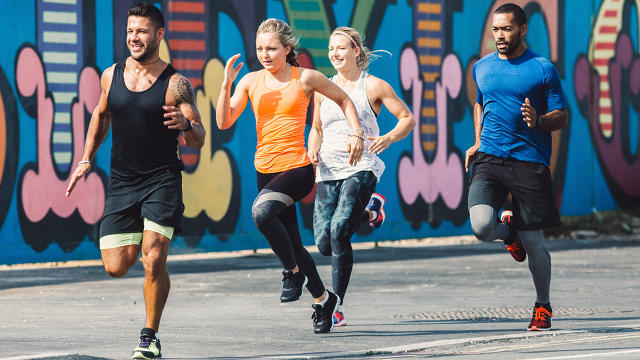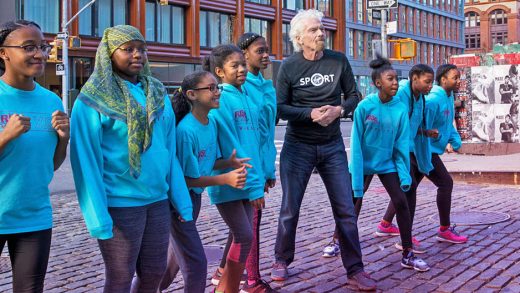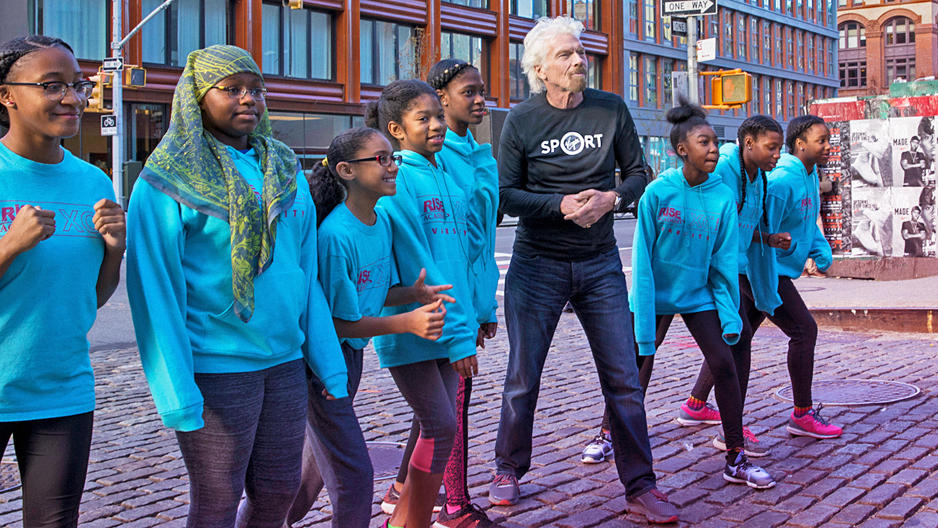Richard Branson’s Next Big Idea: Sports Festivals
When I was in elementary school, one of my favorite moments in the academic calendar was Sports Day. Classes would be canceled and we’d go outside to take part in relays, high jumps, and tug of war. Parents and siblings would come out to support us, bringing homemade packed lunches. There were even special races for the grown-ups. I remember cheering loudly for my father as he competed against the other dads. As an adult, I’ve always found working out and going to the gym to be a chore, but when I think back to my best experiences with fitness, Sports Day always comes to mind.
Richard Branson, the business world’s ambassador of fun, wants to package the spirit of these childhood sporting events with his new enterprise: Virgin Sport. The company is going to create sports festivals around the world—taking a page from the playbook of music events like Coachella and Glastonbury—where entire families can come out, bring a picnic, buy a beer or a healthy snack from the food tent, listen to music, and participate in sports. There will be a signature race like a half-marathon, but there will also be less intense events like outdoor fitness classes and yoga. The cost to attend one of these events will start at about £48 ($57) in the U.K.; prices in the U.S. have not been determined yet, but will be about the same as an average music festival.
Branson has hired Mary Wittenberg, former race director for the New York City Marathon and CEO of the New York Road Runners, to launch the company. The very first Virgin Sport festival will take place at the end of April in England, but there will be other events throughout the year everywhere from San Francisco to Oxford.
Branson is famous for trying his hand at diverse businesses including Virgin Galactic, which will take tourists to outer space; Virgin America, an award-winning U.S.-based airline; and Virgin Cola, a Coke-like beverage brand that eventually went bust. I sat down with him to discuss Virgin Sport and his overall approach to starting companies.

Fast Company: What’s your vision for Virgin Sport?
Richard Branson: Sporting events in the past have all been very much aimed at the individual and not at the family as a whole, whereas a concert is fun for everybody. That’s what a sports event should be, and that’s what we’re going to make it. We’re thinking about it very much in the same vein as a music festival; even the tickets that people will buy will look like music festival tickets.
Where do you come up with ideas for companies like this? Virgin Sport sounds worlds away from say, Virgin Galactic.
I get ideas for businesses literally everywhere. It was my son-in-law, Freddie Andrewes, who came up with the idea for Virgin Sport. We were doing a biking challenge in Cape Argus (South Africa) together. Instead of the elevator pitch, he pitched me the idea while we were cycling up Table Mountain outside Cape Town. In order to shut him up, I said yes. I suppose “no” would have been shorter, but he’s my son-in-law, so what could I do?
But joking aside, an important part of Virgin is to help people with their health. This business seems to fit that criteria absolutely perfectly.
Virgin’s whole approach to business is to make things and experiences fun. Do you think about how you will monetize a project from the very beginning?
I never think about those things when I start a business. I think, “Is there a need for this? Will it be fun to do? Will people enjoy it? Is it the right thing to do?” If you get all of these criteria right, then you’ll pay the bills and you’ll have more money coming in than going out.
Sometimes, I’ve gotten that right and sometimes I’ve fallen flat on my face. But fortunately, more often than not, I’ve been able to deliver.
Do you feel that perhaps thinking about revenue too early on can interfere with creating a good business?
Yes. I think about Virgin America, for instance. What mattered was getting every single little detail right. We’ve had 11 years in a row of being voted the best airline in America. It took a while, but in the end the money started coming in, and it became a company worth 3 billion dollars. The key was not worrying about the bottom line. I think the bottom line will sort out itself if you get the business right.

You mentioned that sometimes you get ideas right and sometimes you don’t. When do you decide that it’s time to give up on a business?
I generally hang on in there far too long. I think it’s not so much about whether it’s not working financially. If you haven’t got the quality bang-on right, then it’s not going to work.
We took on Coca-Cola once with Virgin Cola. We had a lot of fun, but we eventually had to fold. The difference was that when British Airways took on Virgin Atlantic, we were exceptionally better than them. But when Coca-Cola took us on and tried to crush us, we were just another can of cola. It was easy for them to take us out because we weren’t exceptionally better than them.
You win some, you lose some.
You have a diverse portfolio of businesses. Are you always applying insights from your other businesses whenever you start a new one?
The main thing is not to do any new business that doesn’t enhance the brand. The brand is your reputation. It’s your life; it’s all you’ve got. So every decision has to be considered.
I’m sure Mary and her team will be debating what to charge for Virgin Sport. If there’s any danger of overcharging, you’ll damage the brand. You mustn’t do that. You’ve got to give people good value for money. You’ve got to surprise and delight people. We just try to make sure that any new brand that we launch helps all the other brands in the portfolio.
So what would you say is the through-line between all your businesses?
We aim to reach for the skies in everything that we do. Sometimes literally. Take, for instance, the fact that we’re going to take you into space someday. The Virgin Galactic brand will be, I suspect, the halo brand for all the other brands.
We like to try to do things differently from everybody else as much as possible. We want to provide good value for everybody. We like to have a lot of fun doing it. We want to make sure that our people are really happy and thoroughly enjoying what they’re doing.
And it sounds a bit corny, but we really want to make a difference in the world. Every company must draw a circle around itself and look after the community within that circle. We’ll speak out and campaign on issues we feel strongly about. And we’ll use Virgin as a force for good.
Fast Company , Read Full Story
(64)



